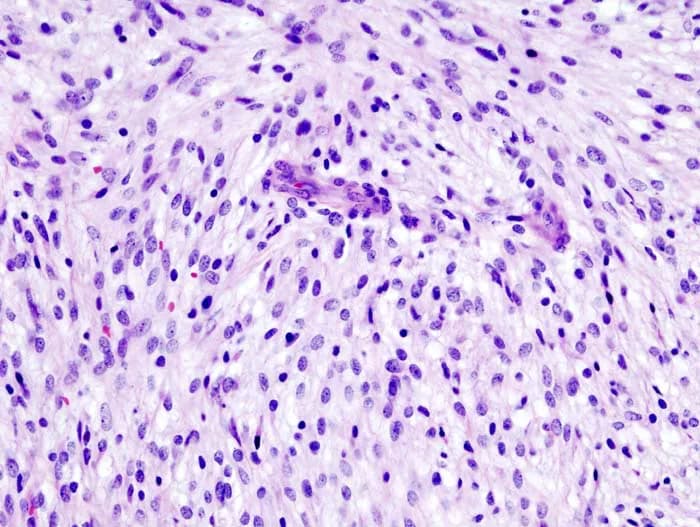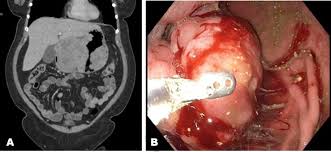
1. The Psychological Impact of Leiomyosarcoma
A diagnosis of leiomyosarcoma can cause an immediate emotional shock to the patient. As a rare and aggressive form of cancer, LMS often comes with an uncertain prognosis, which can lead to feelings of fear and helplessness. Some patients may experience a range of emotional reactions, including:
1.1 Initial Shock and Denial

The first reaction many patients experience after being diagnosed with leiomyosarcoma is shock. For some, the news may be completely unexpected, and for others, there may have been a lingering concern about their health, but the confirmation of a cancer diagnosis still comes as a traumatic blow. This shock is often followed by a phase of denial, where the patient may refuse to believe the diagnosis or downplay its seriousness. Denial is a psychological defense mechanism that helps people cope with overwhelming information. While it can provide temporary relief, prolonged denial can delay treatment and emotional adjustment.
1.2 Fear and Anxiety
One of the most common psychological responses to a cancer diagnosis is fear. Fear about the future, fear of treatment, and fear of death or disability are all significant concerns. Patients with leiomyosarcoma may experience heightened anxiety due to the uncertainty of the disease’s progression, the possibility of metastasis, and the aggressive nature of the cancer. Anxiety may be particularly acute when the patient feels that they have little control over the outcome of their condition.
1.3 Depression and Despair
The chronic stress and uncertainty associated with a cancer diagnosis, as well as the side effects of treatment, can contribute to depression. Patients may feel sadness, hopelessness, and despair, and may even experience feelings of worthlessness. The physical toll of treatments such as surgery, chemotherapy, or radiation can exacerbate these feelings, making it difficult for patients to maintain a positive outlook.
1.4 Anger and Frustration
Anger is another common emotional response to cancer, especially when patients feel that they are unfairly burdened with the disease. This can manifest as anger towards the medical system, family members, or even oneself. Additionally, frustration with the limitations caused by illness and treatment side effects can contribute to emotional strain. Anger, if not addressed, can also lead to relationship challenges and increased stress.
1.5 Isolation and Loneliness
Cancer patients often experience isolation, both physically and emotionally. The emotional toll of the disease can cause patients to withdraw from their social circles, and the physically debilitating effects of treatment may make it difficult to engage in social activities. Patients with leiomyosarcoma may also feel isolated because the rarity of the disease means they have fewer opportunities to connect with others who are experiencing similar challenges.
2. The Role of Psychological Support in Cancer Care

Given the emotional and psychological challenges that accompany a leiomyosarcoma diagnosis, psychological support is critical in helping patients maintain and improve their emotional health. Effective psychological support can be provided through a variety of methods, both formal and informal, which can play a significant role in improving the patient’s mental well-being, enhancing their coping strategies, and potentially improving treatment outcomes.
2.1 Psychotherapy and Counseling
Psychotherapy or counseling is one of the most effective ways to address the psychological challenges of cancer patients. Mental health professionals, including clinical psychologists or licensed counselors, can provide patients with a safe space to express their fears, anxieties, and frustrations. Cognitive-behavioral therapy (CBT) is a popular and evidence-based approach used in cancer care. CBT helps patients reframe negative thought patterns and teaches coping skills for managing anxiety, depression, and stress.
Additionally, supportive counseling allows patients to process their emotions in a healthy way and may also address issues related to body image, sexuality, and relationships, which can be particularly important for patients with cancer of the reproductive system, such as uterine leiomyosarcoma.
2.2 Support Groups
Support groups are a valuable resource for patients with leiomyosarcoma, particularly because of the rarity of the disease. Connecting with others who are facing similar challenges can help patients feel less isolated and more understood. In these settings, patients can share their experiences, exchange coping strategies, and provide emotional support to one another. These groups may be in-person or online, and may be facilitated by medical professionals or cancer survivors.
Support groups can also provide a sense of community and hope. Being surrounded by others who have faced or are facing similar battles can help patients feel empowered and less alone in their journey. Many cancer survivors, especially those who have overcome challenges related to LMS, provide mentorship and inspiration to newly diagnosed patients.
2.3 Mindfulness and Relaxation Techniques
Mindfulness and relaxation techniques, such as meditation, yoga, and deep-breathing exercises, are increasingly being used as complementary therapies for cancer patients. These techniques have been shown to reduce stress, improve mood, and enhance overall emotional well-being. For patients with leiomyosarcoma, engaging in practices that promote relaxation can help reduce anxiety, alleviate pain, and improve the quality of life during treatment.
Mindfulness, which involves focusing on the present moment without judgment, helps patients become more aware of their emotional and physical states. It can be particularly helpful in managing the emotional toll of cancer treatment. Regular mindfulness practice can provide patients with a sense of calm and control, which may reduce feelings of helplessness.
2.4 Family Therapy and Education
Cancer impacts not only the patient but also their family and loved ones. Family therapy can be a useful tool in helping loved ones understand how to best support the patient emotionally and mentally. Family members may also experience their own emotional distress, including anxiety, sadness, and fear, and therapy can help address these issues. By educating families on the emotional and psychological challenges of cancer, families can be better prepared to offer emotional support in a way that fosters resilience.
Additionally, family therapy helps facilitate communication between the patient and their loved ones, ensuring that the emotional needs of both the patient and their family are addressed. This support can enhance the overall caregiving environment, making it more conducive to the patient’s recovery and well-being.
3. The Benefits of Psychological Support
The importance of maintaining emotional health during cancer treatment cannot be overstated. Emotional well-being plays a key role in the patient’s ability to cope with treatment side effects, adhere to medical recommendations, and improve overall quality of life. Here are some of the key benefits of psychological support for leiomyosarcoma patients:
3.1 Enhanced Coping Skills
Psychological support helps patients develop coping strategies to manage the psychological and emotional stress of cancer treatment. Whether through individual therapy, group support, or relaxation techniques, patients can learn how to manage their emotions and navigate difficult moments in a way that minimizes distress.
3.2 Improved Treatment Adherence
Studies have shown that patients who receive psychological support are more likely to adhere to their treatment regimens. The emotional support and stress-reduction techniques provided through therapy can make it easier for patients to manage the physical and mental challenges of treatment, leading to better outcomes.
3.3 Increased Sense of Control
A cancer diagnosis can make patients feel helpless and out of control. Psychological support helps patients regain a sense of agency and control over their lives. By learning coping techniques and engaging in therapies that reduce stress, patients can feel more empowered in their journey, even in the face of adversity.
3.4 Better Quality of Life
Psychological support is essential for improving the quality of life for cancer patients. Patients who receive therapy and emotional support experience less emotional distress, better mental health, and greater overall well-being. This can lead to a better ability to engage in daily activities, improved interpersonal relationships, and a more positive outlook.
3.5 Increased Survival Rates
Some research suggests that patients who receive psychological support and maintain emotional health during cancer treatment may experience improved survival rates. While emotional health alone is not a cure, a strong psychological foundation can improve resilience, enabling patients to better withstand the physical toll of treatment and potentially contributing to better outcomes.
Leiomyosarcoma is a rare and challenging cancer, and its diagnosis can have significant emotional and psychological effects on patients. As the medical field continues to focus on the physical aspects of cancer treatment, the importance of psychological support is becoming increasingly clear. Addressing the emotional needs of patients with leiomyosarcoma is critical for their overall well-being and can play an essential role in improving their quality of life, treatment adherence, and even survival.
